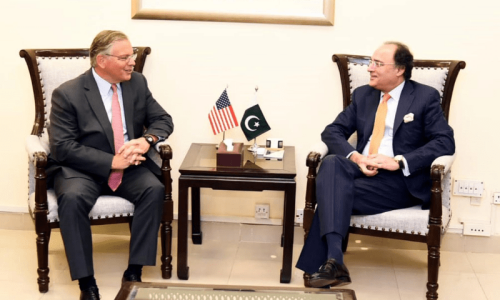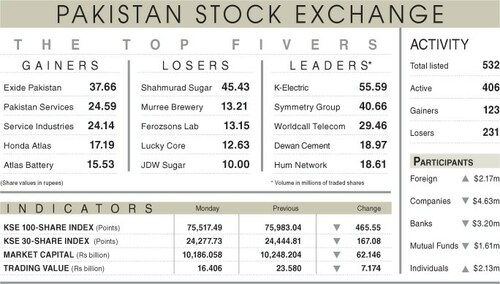IN Pakistan, sales tax is collected by the federal government on the imports and domestic supplies of goods, and by the provincial governments on services. Sales tax is essentially a VAT type of tax based on the destination principle.
Although a major source of revenue contributing over 44pc of the overall federal tax receipts, the sales tax regime is not efficient and effective revenue generator in terms of VAT productivity and efficiency.
The GST-to-GDP ratio is around 3.5pc. Compared to developing countries of South Asia, Pakistan’s performance is low. The VAT/GST-to-GDP ratio in 2010 for Sri Lanka was 3.9pc, Bangladesh 3.5pc and Nepal 4.5pc.
Sales tax in Pakistan is highly concentrated on a few commodities. About 73pc domestic sales tax comes from 10 commodities: petroleum products (43.8pc), natural gas (8.9pc), fertilisers (4.8pc), cement (2.8pc), electrical energy (2.4pc), cigarettes (3.5pc), aerated water and beverages (2.6pc), sugar (2.1pc), tea (1.3pc) and food products (0.8pc).
Compared to developing countries of South Asia, Pakistan’s performance is low
The number of registered sales taxpayers in various categories increased to less than 100,000 during the year 2012, from 75,538 in 2000. Less than half of the total registered taxpayers actually file returns.
An important reason for increased non-compliance of GST is the high compliance cost to businesses in term of hours per annum, which is 480 hours in Pakistan, as opposed to world average of 108 hours; and as against 122 hours in Nepal and 162 hours in Bangladesh.
Another reason for the narrow sales tax net is an ineffective system for sales tax registration. Many businesses remain unregistered, especially wholesalers. This results in the evasion of sales tax [true evasion of sales tax resulting from non-registration can only occur at the final stage of distribution, i.e. supplies made by retailers]. According to the Economic Census of Establishment, Pakistan, such entities — small and medium enterprises — constitute 80pc of the total enterprises.
While the registration process is fully automated the IRS authorities are unable to create a business-friendly environment for registration.
The basic concept behind the levy of this tax was that the legal incidence of the sales tax would be on sellers, including importers, manufacturers, distributors and eventually retailers, and the effective incidence would be upon consumers (according to their capacity to consume).
It is, therefore, expected that the manufacturers would shift the burden of consumers’ share of sales tax through distributors, wholesalers and retailers. The desired results could not be obtained as the informal economy is estimated to be nearly as large as the formal economy. A considerable number of manufacturers failed to shift the tax burden to consumers, as several intermediate distributors and retailers (between manufacturers and consumers) are not registered for sales tax. Therefore, the major burden of sales tax (legal and actual incidence) has been borne by the manufacturers.
The B2B transactions do not contribute to real sales tax revenues because the sales tax that manufacturers charge to wholesalers can be deducted by the wholesaler and the sales tax that wholesalers charge to retailers can be deducted by the retailer. The rationale of VAT is that total final consumption is taxed and that the tax is collected in slices.
Even if the retailer is not registered, the government still receives the sales tax on the retailer’s purchases because the registered manufacturers include sales tax in the price of the products. The registered manufacturers have to sell products at higher prices as compared to unregistered manufacturers, which give rise to imperfect competition.
To shift full tax incidence on consumption requires broadening the sales tax base by registering wholesalers, distributors and retailers. It is also essential to minimise the use of multiple rates especially concessionary regimes to prevent tax evasion and tax frauds.
Published in Dawn, Business & Finance weekly, June 27th, 2016













































